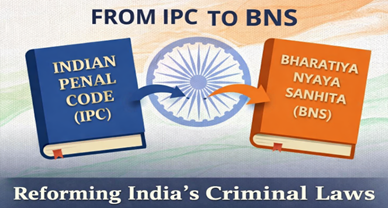Perpetual Plight: Unveiling the Unending Saga of Exploitation
INTRODUCTION
At the outset of the COVID-19 lockdown, some unprecedented scenes erupted that before were almost unimaginable for any of us, when interstate migrant workers started walking back to their native states and villages from the metro cities where they had gone with a dream of living a better life and as an escape from poverty. The whole world witnessed the disastrous moments of covid and between all of those, there was a segment of people who were completely deprived of any resources and left completely vulnerable. The surprising fact is that COVID may had brought their situation to the front of the world but before or after COVID they continued to be one of the most exploited segments of society. We may have many legislations for safeguarding the interest of migrant workers but still their exploitation remains constant. The challenge of decent work in India remains overwhelming as India’s economy is largely informal and migration continues to be a key strategy for livelihood security. The majority of interstate migrant workers face challenges for employment, payment of wages, Inadequate living conditions, and almost they are completely deprived of social protection. India being a developing country needs to safeguard its interests as they are the base of development as in almost every sector they are the basic contributors. The majority of these migrant workers belong to poor states and in order to live a better life they come to metro cities with minimal resources, here they get stuck and their lives become even worse. COVID may have disappeared but the exploitation of migrant workers remained constant and may will increase if their interests are not safeguarded strictly. These migrant workers come from a very weak background and they do not have enough resources to fight for their rights and many times they are not even aware of the rights they have. The government may have been taking many steps for their welfare but if you will go on site then it is not very hard for you to get on a conclusion that that situation has not improved or may even have degraded.
KEY REASONS FOR MIGRATION
The major reason for the migration of these workers is financial issues. According to the 2011 census almost half of the interstate migrant workers in India are from UP, Bihar, Madhya Pradesh and Rajasthan. One thing common in all these states is poverty. These states have the highest incidence of poverty and lag behind in human development. The living conditions in these states are very dud and unimaginable for someone who is living an average life in metro cities. As per Niti Aayog’s National Multidimensional Poverty Index 2015-16, the poverty levels in Bihar Uttar Pradesh and Madhya Pradesh were 51.9%, 37.7%, and 36.6% respectively.
These people do not have enough resources to sustain themselves in their native places and to escape that poverty zone and with a dreamy purpose of living a better life, they move towards metro cities in search of work without knowing the consequences which they will have to face. Most of the time they don’t even have basic ideas about where they are going to work and without any plan in a hurry to move out of their current situation with very limited resources they move to cities where they get stuck and once their resources get exhausted they become very helpless and this become one of their prime reason for their exploitation because they don’t have any other options rather than of agreeing to the terms and condition of their employer. Another reason for migration is wage disparity and more employment opportunities in cities as for the same work in their native town or village they get very low wages and Employment opportunities in small towns and villages are also very limited. But this eagerness to earn more and get a better employment opportunity lands them in a situation where they are exploited as much as they can be by their employer. They get stuck in a situation where they can’t go back and are left with no choices other than to sustain hardships.
HARDSHIPS FACED BY MIGRANT WORKERS IN INDIA
The most frequent problem which a migrant worker faces is issues related to the payment of wages. Very frequently a migrant worker receives wages that are below the legally mandated minimum wage rates. There are legislations related to minimum wages but their implication fails as most of these migrant workers work informally and lack bargaining powers. There are instances where workers do not get their wages on time and sometimes even they are not paid for the overtime work they have performed. For their minute mistakes and faults their wages are deducted and many times they are overworked that to without any extra reimbursements. Employers exploit their Vulnerability expecting unpaid overtime as normal rather than as an exception. Unpaid overtime is almost normal for every migrant worker and many times when they raise their voice against it then they are also deprived of their basic wages. The working condition of migrant workers also raises a very significant question regarding the well-being safety and overall quality of life of those workers.

Migrant workers frequently work in hazardous conditions without adequate safety measures. Despite proper guidelines and regulations employers in order to save their own profit often ignore these safety standards which often leads to accident injuries and many long-term health problems for those workers. Workers are forcefully indulged in long hours of work exceeding the legal limits without proper rest breaks. These prolong physical and mental exhaustion often impact physical and mental health of a worker and their productivity. Due to the nature of their working conditions, these workers often suffer from respiratory illness, accidents and stress-related conditions. The harassment does not stop only at working places but also they have to suffer from inadequate housing and living conditions. Mostly these migrant workers live in overcrowded and substandard accommodations with worse facilities in very unhygienic conditions. They don’t even have access to basic amenities such as clean water sanitation facilities proper ventilation and proper diets. There are multiple other bad facets which are so normal for them that they don’t even consider it bad like unhygienic food. For them a proper healthy diet is equal to a fivestar meal for an average guy so they keep on consuming the worst quality food as normal, compromising their health. Despite having legal provisions and enforcement mechanisms for wage protections other related issues their rights are continuously curtailed. Due to their dependency on their employer and helplessness to sustain their livelihood most of the time they stay quiet and get themselves get exploited.
INEFFECTIVE LEGAL PROVISIONS
There are various different legislations and acts which collectively aims at safeguarding the interest of migrant workers in India. The government had many time brought many laws and legislation to safeguard the interest and reduce the exploitation of migrant workers but somewhere the lack of will to really enhance their state is visible when we deeply look into the current situation of migrant workers. The question continues to arise that if the government have taken measures repeteadly then why the condition of these workers is still exacerbating? Despite of multiple laws such as the Inter-State Migrant Workmen (Regulation of Employment and Conditions of Service) Act, 1979, Building and Other Construction Workers (Regulation of Employment and Conditions of Service) Act, 1996, Inter-State Migrant Workmen (Regulation of Employment and Conditions of Service) Central Rules, 1980, Equal Remuneration Act, 1976 Etc and Various social security schemes, such as the Employees’ State Insurance (ESI) Act, 1948, and the Employees’ Provident Funds and Miscellaneous Provisions Act, 1952, to provide social security benefits to workers, including migrant workers, in terms of healthcare, insurance, and retirement benefits but their interests are not safeguarded properly are the workers are completely deprived by any benefits by these laws. No matter how many new legislations and labour laws are introduced but situation would never improve unless and until their implementations is not done properly. The enforcement mechanisms fail in India to be effective. And nothing to be surprised by these failed laws as the basis to implementation starts from registration and despite the migration clause in the Interstate Migrant Workmen Act 1979 most of labourers are not registered as a majority of them are gig workers and do not have formal contracts of employment or are arranged through informal arrangements. This makes the enforcement of existing labour laws more challenging and despite of the clear knowledge that most of the labours are indulged in unformal sectors till today not no proper mechanism for their registration have been introduced till today. A significant population of migrant workers are involved in the informal sector and that too with no record of employment. Enforcement of labour laws in informal sectors are not adhered strictly and with no records of employment it becomes almost impossible to get justice and even employers also use these loopholes to exploit labourers. The legal framework related to migrant workers in India is very complex and fragmented across different laws and regulations. Many states have their own laws. There is no uniformity of laws and that makes it more complex. This complexity makes it difficult for migrant workers to understand and exercise their rights, and for authorities to effectively enforce them.
CONCLUSION
The awful state of migrant workers in India is a stark reminder of systematic failures and persistent challenges in safeguarding their interests and well-being. Despite the numerous legislation and social security schemes aimed at protecting them the ground reality is very disheartening. The COVID-19 pandemic may have brought light on the acute vulnerabilities of migrant workers but their exploitation predates and persists beyond crisis. The reasons behind the continued exploitation of migrant workers are multifaceted. They are due to ineffective enforcement of existing laws, fragmentations within the legal framework and lack of uniformity in laws. However, these issues need immediate attention and any reconstruction mechanism must be put into force by the government to improve their condition. The government do have enough resources but discussions about the welfare of migrant workers have been limited to votes and policy-making making and their implementation has been a complete failure. The government lacks it will and it could degrade the situation. Rather than introducing new laws work should be done on bringing uniformity in legislation and reducing their complexity. Being a developing country India needs the welfare of its migrant workers as they are the backbone of development and their poor financial status forces them to move out of their native places into harsher working environment. If a robust legal framework is not made and more importantly if not enforced properly then the situation of migrant workers would more exacerbated and exploitation would remain constant. Their socio-economic vulnerabilities need to be secured and strengthening them is need of an hour because since time immemorial they have been ignored and due to this they have been hindered continuously. Addressing the challenges faced by migrant workers requires comprehensive reforms at multiple levels. This includes strengthening enforcement mechanisms, improving legal literacy and awareness among workers, enhancing coordination between central and state governments, promoting formal employment opportunities, and fostering inclusive development policies that prioritize the welfare of migrant workers. As India has made strides in legislating for the protection of migrant workers, the persistent exploitation and hardships they face highlight the urgent need for robust implementation, systemic reforms, and a concerted effort to address their unique challenges. Upholding the dignity, rights, and well-being of migrant workers is not just a legal aim but a moral and economic aim for India’s sustainable development and inclusive growth. Without decisive action, the cycle of exploitation and vulnerability will continue to undermine efforts towards a more just and equitable society.
Author: Harshit Raj Singh, in case of any queries please contact/write back to us via email to chhavi@khuranaandkhurana.com or at Khurana & Khurana, Advocates and IP Attorney.


